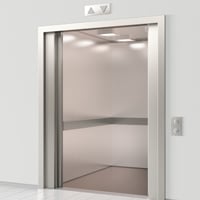Escalator and Elevator Injuries
 Escalators and elevators are common in offices, apartment buildings, malls and other public venues. These transportation devices usually run smoothly. But when they do not, serious injuries can occur.
Escalators and elevators are common in offices, apartment buildings, malls and other public venues. These transportation devices usually run smoothly. But when they do not, serious injuries can occur.
According to a 2013 report by the Center for Construction Research and Training (CCRT), in cooperation with the National Institute for Occupational Safety and Health (NIOSH), 31 people are killed and 17,000 people are injured in escalator and elevator accidents each year. Elevators cause approximately 90 percent of the fatal injuries and 60 percent of the serious injuries, including traumatic brain injury (TBI), spinal cord damage, broken bones, concussions, loss of limb, and crush injuries.
Most fatal accidents happen to people working in or near the elevators. Of those fatalities, 56 percent were due to slip and falls into the shaft. Workers getting caught in/between parts of the elevator and workers getting struck by elevators or counterweights accounted for 18 percent and 16 percent of deaths, respectively.
More than half of the work-related elevator deaths were caused by inadequate maintenance, namely failure to prevent movement of elevator parts during maintenance or repairs, and failure to de-energize electrical circuits, according to the CCRT report.
Malfunction and Hazards
The Occupational Safety and Health Administration (OSHA) requires lockout/tagout practices during elevator and escalator repair, as well as adequate slip and fall protection and other safety precautions. New Jersey property owners are also required to perform regular inspection and basic maintenance on elevator equipment.
However, sometimes property owners fail to keep their elevators and escalators in proper condition. This can lead to accidents from malfunctions including:
- Elevator stops between floors
- Elevator suddenly drops or rises
- Elevator door does not close
- Elevator door fails to detect body part before closing
- Large gap between elevator and shaft or between stairs and escalator sides
- Missing teeth on escalator track
- Broken or missing steps on escalator
Premises Liability
Property owners who do not properly maintain their elevators and escalators risk having to pay for costs associated with any resulting injuries under premises liability. Premises liability is a legal theory that states that property owners must ensure that their property is reasonably safe for visitors. Those who violate that duty may be responsible for covering the injured party’s medical expenses, lost wages, rehabilitation costs, disability, emotional distress, and other damages.
Negligent property owners may be liable for injuries caused due to poor maintenance or inadequate inspection.
The authors of the CCRT report suggest that property owners avoid liability and help to prevent elevator and escalator-related deaths and injuries by:
- Following lockout/tagout procedures during maintenance or repair
- Regularly inspecting and maintaining equipment
- Using only qualified workers for repair and maintenance
New Jersey Personal Injury Lawyers at Eichen Crutchlow & Zaslow, LLP Represent Those Injured in Elevator and Escalator Accidents
The statute of limitations in New Jersey for personal injury claims is two years from the date of the accident. If you suffered an injury on an elevator or escalator, contact an experienced New Jersey personal injury lawyer at Eichen Crutchlow & Zaslow, LLP as soon as possible. We are experienced in handling elevator and escalator injury cases and dedicated to obtaining maximum compensation for our clients. We proudly represent clients throughout New Jersey from our offices in Edison, Toms River and Red Bank. Contact us online or call us at 732-777-0100 to arrange a free consultation.

Eichen Crutchlow Zaslow, LLP has purposely remained small in size, because it is important to us that we get to know our clients and their needs. Larger NJ injury firms may churn out case after case, but that’s not how we operate. Partners Barry Eichen, William Crutchlow, and Daryl Zaslow have created a firm with the resources to handle complex litigation, and a team that takes your case personally.
Find out more about Eichen Crutchlow Zaslow, LLP
